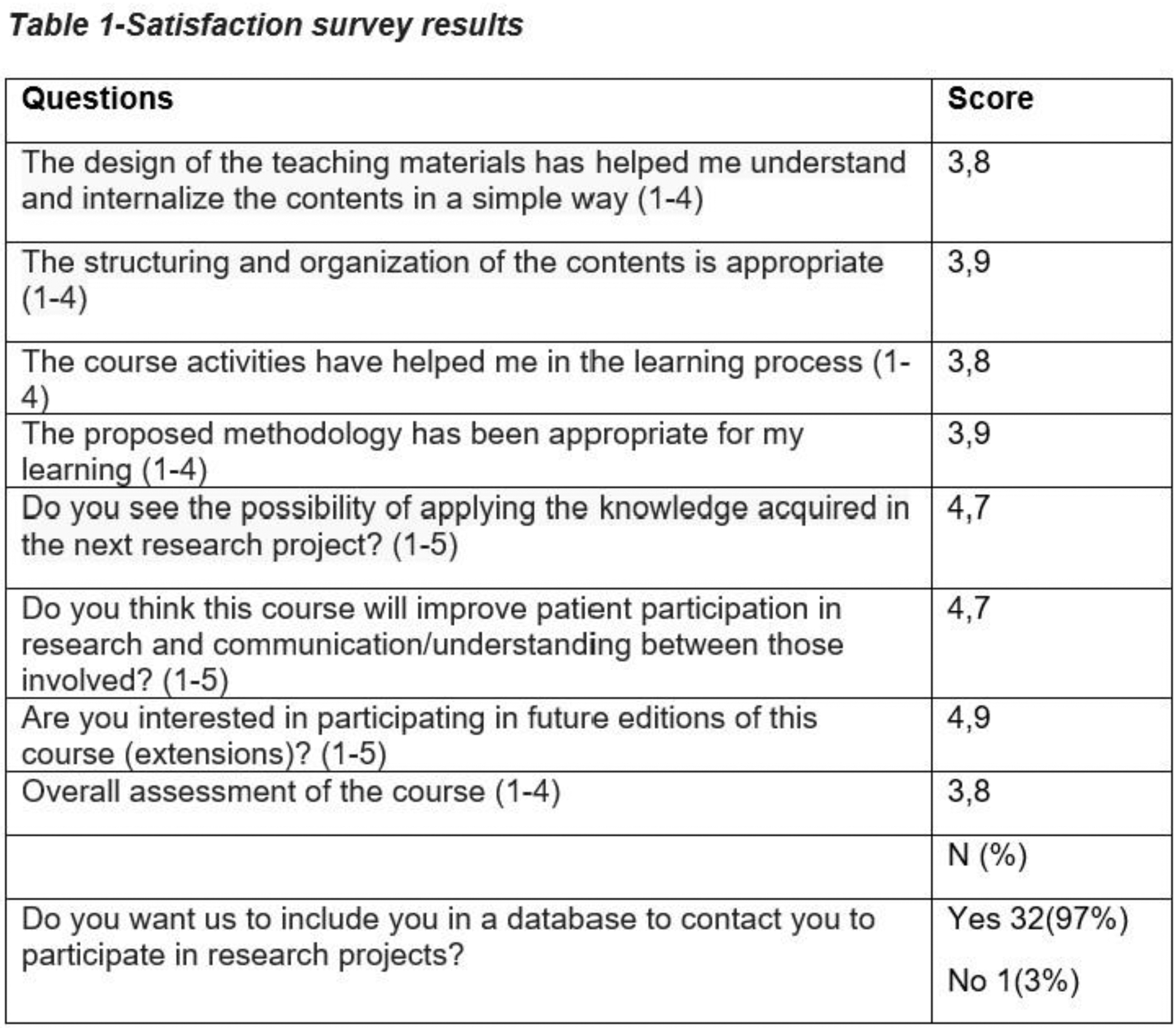

Background: National and international public research calls are committed to the incorporation of patients in all research projects, collaborating in all project processes and providing the patient’s vision in each research initiative. There is an unmet need in this sense, since the only regulated training is from EULAR, it involves an economic cost and is in English.
Objectives: Create the first online training for patients in Spanish and health professionals to collaborate in research projects of any type in rheumatology.
Methods: OPEN REUMA creates free online training for patients and researchers in rheumatology that serves, on the one hand, for patients to learn about research and its processes and to make professionals aware of the benefit of collaborating with patients in their research projects. Carry out a campaign on social networks to raise awareness about the importance of patients participating in research. Establish a network of patients with different rheumatic pathologies trained to be the point of reference for the projects of our organization, Spanish Society of Rheumatology, EULAR, hospital or any ad hoc group created to undertake research projects. We created an online campus based on Moodle linked to a CRM in which a prior knowledge questionnaire was carried out, training was carried out interactively, spoken and transcribed by AI for people with sensory diversity. The teaching contents were: 1. Welcome, 2. Introduction: patient participation, patient-generated research, examples and tools, 3. Participants; shared research: introduction, guides and cards. 4. Challenge yourself: activities, download the project. Several tests of knowledge acquired after the training were carried out to pass the course.
Results: 19 researchers in rheumatology: rheumatologists, psychologists, nurses and podiatrists completed the training for researchers and 14 patients with different rheumatic pathologies such as spondyloarthritis, psoriatic arthritis, rheumatoid arthritis, vasculitis, Sjögren’s Syndrome, systemic lupus erythematosus, osteoporosis and osteoarthritis were trained to participate in research projects. After the satisfaction survey carried out by 19 researchers and 14 patients, the overall rating of the course was 3.8 out of 4 (Table 1). After the training, 3 researchers and 1 patient with vasculitis have participated in the OPEN REUMA recommendations for the clinical practice of nurses in the treatment of people with vasculitis. Another 2 patients have been recommended for both international projects that are still in development in the EULAR environment.
Conclusion: Enabling patients to have a relevant role in research projects was a need covered by Participants, creating concern in research in patients and knowledge in their contribution to research for researchers. In this way, Spain has patients trained to collaborate in national and international projects, providing the patient’s vision in the research process.

REFERENCES: NIL.
Acknowledgements: Pfizer scholarship, Maff Consulting and Pontia Design.
Disclosure of Interests: None declared.
© The Authors 2025. This abstract is an open access article published in Annals of Rheumatic Diseases under the CC BY-NC-ND license (